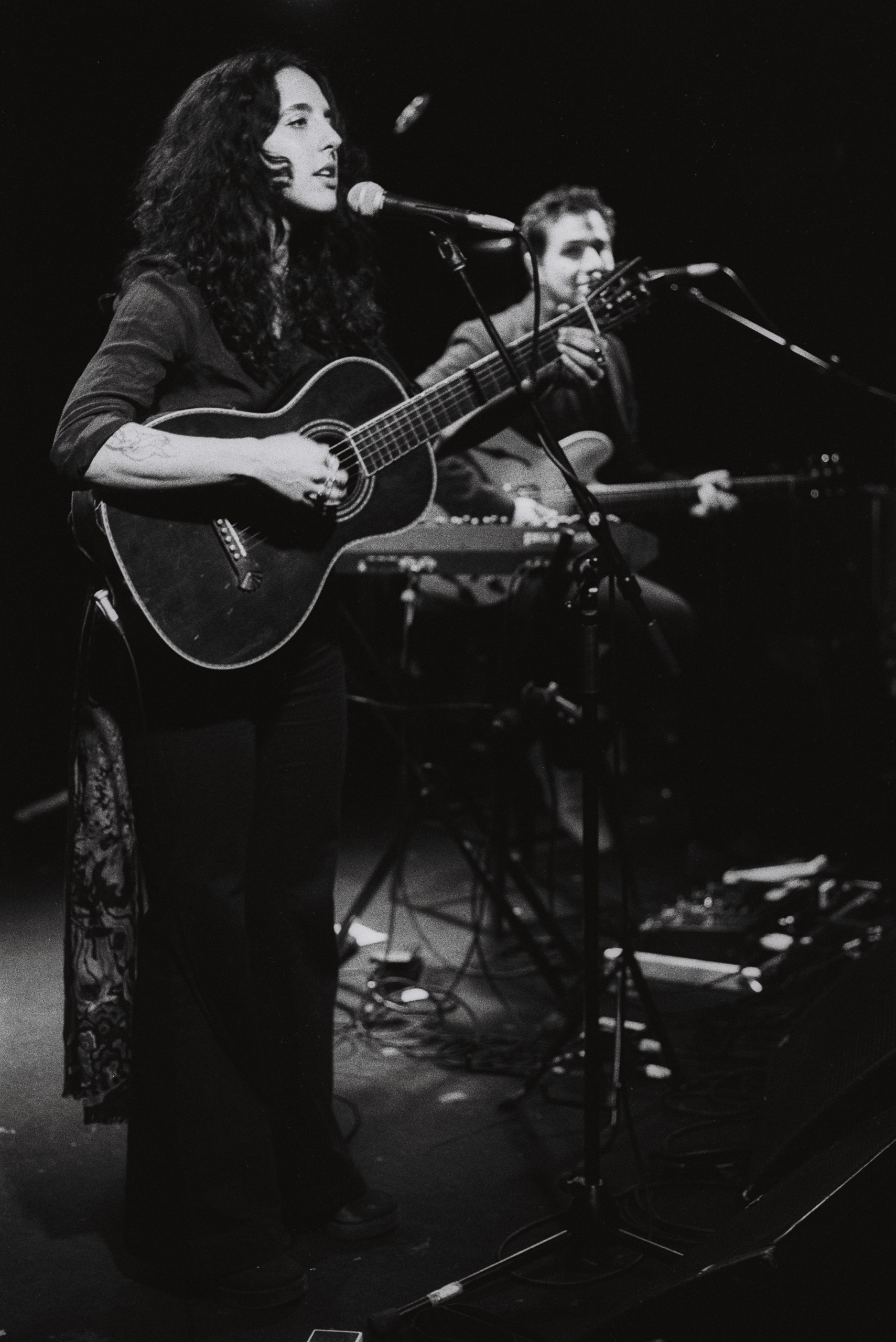My Jewishness is sometimes like a voice that commands attention, other times as a faint whisper.
It slipped into my music (and art) long before I realised it was there, becoming the thread that
weaves through my songs and melodies, through my words and silences. This presence,
intertwined with my Jewish identity, carries a weight that has colored the art I’ve made – an art
that seeks to express the inexpressible.
I think of music, much like faith, as a way to speak to the unknown. It is a conversation with
what is unreachable, what lies just beyond the human experience. And in many ways, this
conversation has been, for me, a conversation with God, even if I did not always know I was
praying.
Inspired by many Jewish geniuses, I always return the music of Rabbi Leonard Cohen – He
found a way to intertwine his Jewishness with art, subtly embedding biblical references and
personal reflections on faith into his songs. His music, never loudly religious, held an
omnipresent spirituality, something deeply intimate. Listening to Cohen is like overhearing a
prayer, one spoken not in temples but in rooms of solitude, as though each note kneels before the
unknowable. It is a humble approach to the divine, a posture I’ve unconsciously adopted. His
songs do not announce their sacredness, but they carry it.
In my own work, I’ve been drawn to these subtle notes – the holy texts that echo faintly in the
background, the unspoken conversations that find their way into the music. My poetry- artwriting- much like my songs, has always felt like a channel into something far beyond my reach,
beyond anything I can fully grasp. It is there, in that unknown space, that my Jewishness speaksnot always loudly, but with the quiet persistence of something ancient, something inherited. It
speaks through the moods of my music, through the stories I tell, and through the words I find
myself repeating.
Even the love songs, I’ve come to realise, were not only about love. They, too, echoed with a
longing for something larger. I was singing to the divine without knowing it, yearning for a
connection to something vast and ancient. In retrospect, many of my songs were love letters to
God, disguised as letters to another person. The same longing, the same desire to be seen and
known, permeated both.
Growing up, I was surrounded by Jewish culture and tradition. The prayers whispered during
Shabbat, the stories told by my family of big female voices, the rituals that marked time- they all
flowed into me, seeping quietly into the art I would one day create…that I was maybe already
creating. The rhythm of Jewish prayer, its ancient, lilting cadence, found its way into my voice,
perhaps without my permission. Those rhythms, I now see, have become part of the melody I
sing.
Music, for me, is davvening- a form of prayer, though not one I am always welcome to
participate in within traditional spaces. But my body sways instinctively when I hear something
beautiful, whether it is a song, a piece of prose, or the teachings of the Zohar. This swaying, this
physical rhythm, is my prayer, my way of entering into conversation with God. And so, my
music becomes the beat to which I sway. It is the sound that fills the space where words fall
short, the song that carries my emotions upward, toward something greater than myself.

In the quiet moments of writing, I feel as though I am reaching into the unknown. It is not a clear or straightforward process, but one that ebbs and flows. Sometimes, the words come in a rush, and other times, they remain hidden, elusive. The art I make is my attempt to reach that mystery. This, I believe, is a deeply Jewish way of being in the world. Judaism allows for the space to question, to doubt, to wrestle with God. It embraces paradox and complexity, and these qualities, I find, shape the music I create. There is always a tension in my work-a tension between faith and doubt, between love and pain, between the personal and the universal. These tensions, which form the backbone of my creative process, are rooted in the tradition that shaped me.
Themes of exile and longing run through much of my work. They are not explicitly tied to faith, yet they are unmistakably Jewish. The idea of exile-both physical and spiritual-is a deep and abiding part of my heritage, and it resonates within me. It is the feeling of being distant from something essential, the search for a home that cannot be found. This search, I realise, is a recurring theme in my music. It is an expression of the Jewish experience of wandering, of exile, and the ever-present hope of return.
In the world we live in now, it feels as though there is less space for Jewish stories, less openness to hear them. Perhaps this is a time for silence, a time for reflection, before the next great explosion of art. I am a new mother now, and I listen to the melodies of my sons as they cry, asking for something they cannot articulate. When I stop swaying to their song, it will be time again to create, to find my place in the world through art once more. But for now, I wait.
